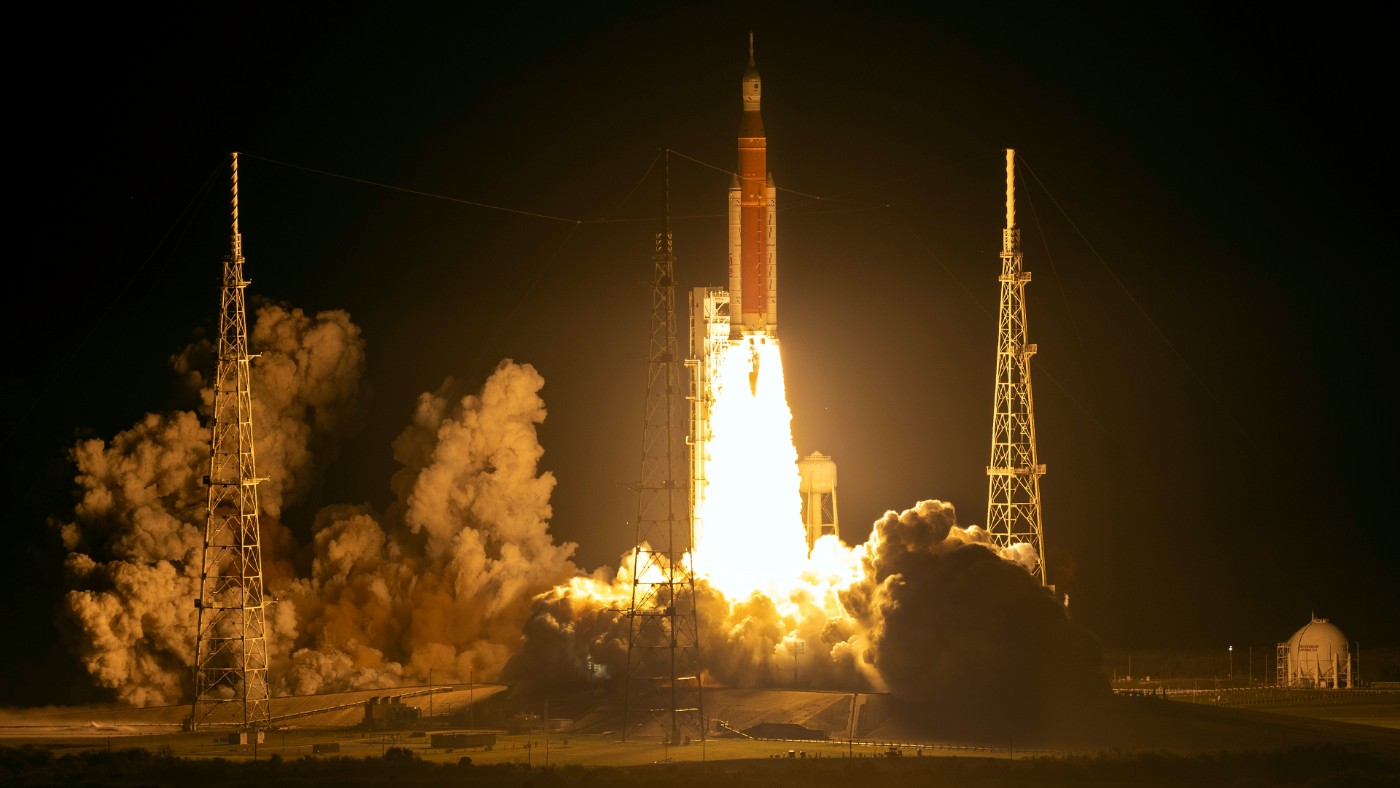Can China beat US in new space race to colonise the Moon?
Beijing has announced plans to land astronauts on the lunar surface by the end of the decade

A free daily email with the biggest news stories of the day – and the best features from TheWeek.com
You are now subscribed
Your newsletter sign-up was successful
China may colonise the Moon “under the guise of scientific research” if the US doesn’t “watch out”, Nasa’s top official has warned.
Nasa administrator Bill Nelson told Politico that a new “space race” had begun – and that Beijing could try to take control of lunar resources unless the US quickly established a presence on the Moon. “It is not beyond the realm of possibility that they say, ‘Keep out, we’re here, this is our territory,’” said the former Florida senator and astronaut, who predicted that the next two years would determine which nation gains the advantage.
Citing Chinese aggression in the South China Seas as evidence of Beijing’s territorial ambition, Nelson added: “If you doubt that, look at what they did with the Spratly Islands.”
The Week
Escape your echo chamber. Get the facts behind the news, plus analysis from multiple perspectives.

Sign up for The Week's Free Newsletters
From our morning news briefing to a weekly Good News Newsletter, get the best of The Week delivered directly to your inbox.
From our morning news briefing to a weekly Good News Newsletter, get the best of The Week delivered directly to your inbox.
The new space race
The “hawkish” comments from Nasa’s top official follows the success of its 26-day Artemis I mission, in which an un-crewed Orion space capsule orbited the Moon, said Politico. The mission marked a “first big step” towards Nasa’s plan to land astronauts on the Moon “to begin building a more permanent human presence” threre, the site continued.
It also “comes on the heels” of Congress passing a full-year budget for Nasa that will fund “key components” for the space agency’s next two Moon missions, Artemis II and III.
In December, Bejing “offered its vision” for a crewed Chinese lunar landing, said The Guardian, including plans for space transportation, infrastructure and space governance. Beijing has also announced plans to land Chinese astronauts – known as taikonauts – on the Moon “by the end of the decade”, the paper reported.
‘Fear mongering’?
Nelson’s warning has been met with scepticism from some experts in the field. Harvard astrophysicist Jonathan McDowell dismissed the official’s comments as “fear mongering” designed to drum up political support for Nasa’s $25.4bn budget.
A free daily email with the biggest news stories of the day – and the best features from TheWeek.com
Reaching the Moon was “not an urgent priority for China”, McDowell told The Telegraph, and “there is no Chinese ‘humans on the Moon’ programme in flight development right now”.
But a Moon mission would be “a natural development of their government space exploration programmes”, he added. “China doesn’t see it as any kind of race, but the pace of the US effort is sufficiently glacial that indeed China might get around to it first.”
According to McDowell, however, “what’s important is not who is first by a year or two, but who has a sustainable presence there in the long term – that’s where the focus should be”.
Sorcha Bradley is a writer at The Week and a regular on “The Week Unwrapped” podcast. She worked at The Week magazine for a year and a half before taking up her current role with the digital team, where she mostly covers UK current affairs and politics. Before joining The Week, Sorcha worked at slow-news start-up Tortoise Media. She has also written for Sky News, The Sunday Times, the London Evening Standard and Grazia magazine, among other publications. She has a master’s in newspaper journalism from City, University of London, where she specialised in political journalism.